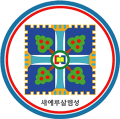USCIRF Releases New Factsheet on the Impact of Coronavirus on Religious Freedom
Washington, DC – The United States Commission on International Religious Freedom (USCIRF) today (March 16, 2020) released the following new factsheet on the global response to the Coronavirus (COVID-19) and the impact on religious practice and religious freedom.
















